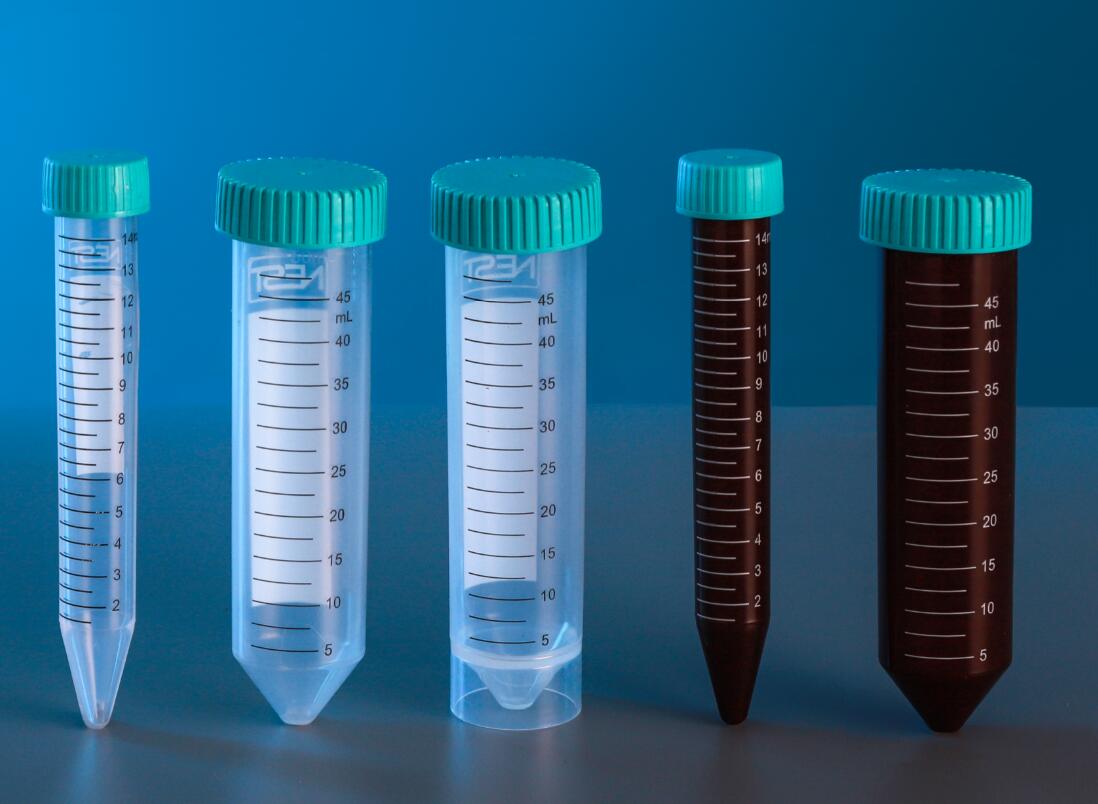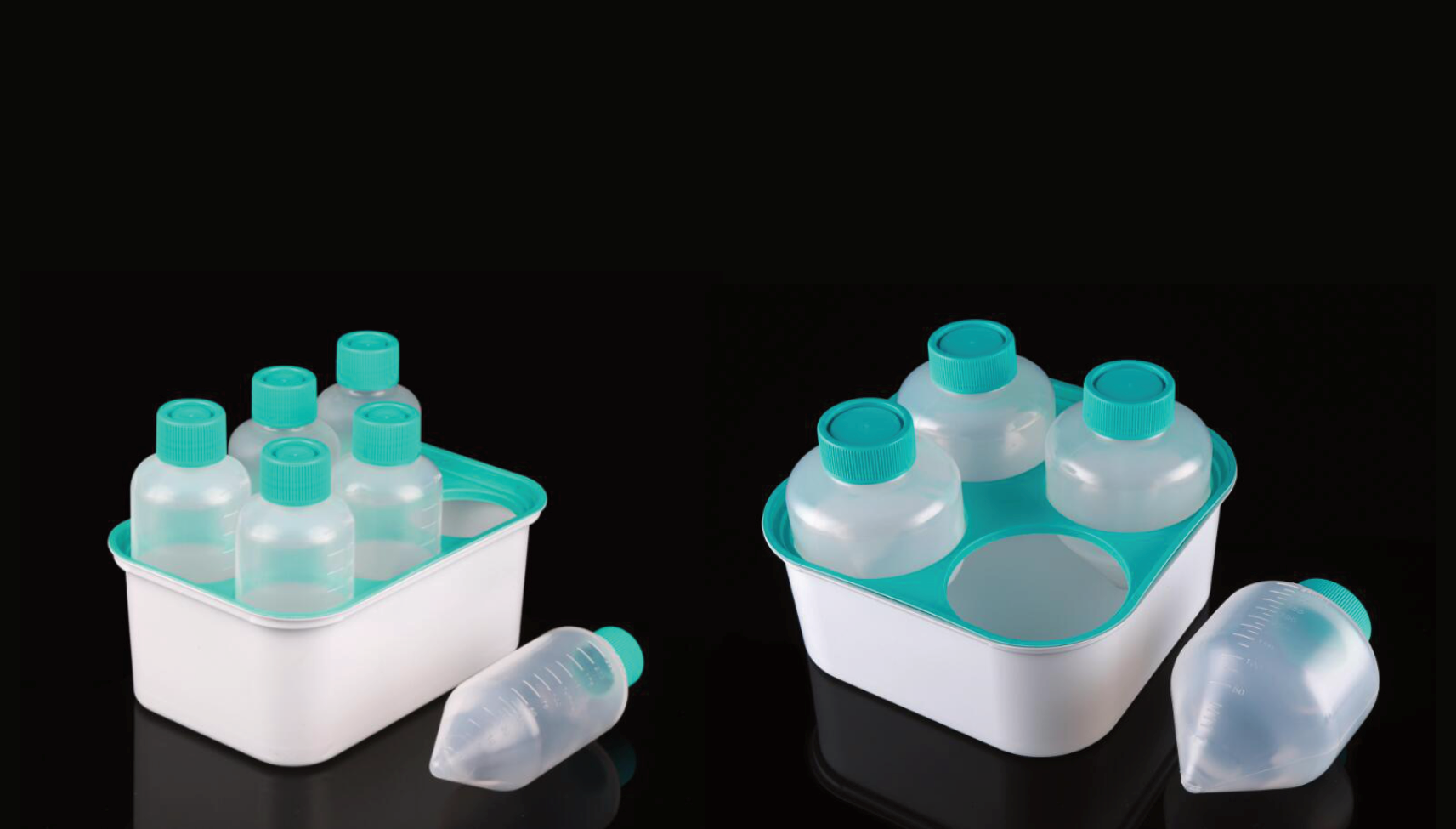NEST centrifuge tubes could be commonly used to collect cells and separate biomacromolecules by centrifugation in biochemistry and other biological fields. They can also be used to store photosensitive samples and special chemiluminescence reagent. The 250mL & 500mL centrifuge tubes can process a large number of samples at one time and are suitable for separation and harvest of large cells, supernatants, bacteria, yeast and tissue samples, therefore they are widely used in the field of life sciences and clinical experiments and can meet the requirements of biological analysis.
Feature:
• Non-Pyrogenic, DNase/Rnase free.
250 mL&500 mL Centrifuge Tube
Application:
Centrifuge Tube,Lab Consuable Centrifuge Tube,Lab Clear Centrifuge Tubes,Lab Transparent Centrifuge Tubes Wuxi NEST Biotechnology Co.,Ltd , https://www.nest-biotech.com
It is understood that the dramatic increase in the sown area of ​​global genetically modified crops and the rapid development of biofuels have promoted strong demand in the herbicide market and led to a significant increase in sales of glyphosate. In 2007, global consumption of glyphosate reached 443,000 tons, which almost doubled compared with 2002. According to Yang Guangliang, deputy chief engineer of the Institute of Petroleum and Chemical Industry Planning, in 2007, the production capacity of glyphosate in China was about 300,000 tons, and the output was about 190,000 tons. It is estimated that in 2008, China's glyphosate production capacity will reach 400,000 tons, and the output will exceed 250,000 tons. At present, China is the largest glyphosate country in terms of global production, sales, and exports.
At present, many domestic glyphosate manufacturers have increased their production capacity, and new investors continue to enter the glyphosate and its upstream raw material market to repeat the construction. The supply of raw materials is in short supply; domestic demand will not increase significantly in the short term. The newly added capacity is only digested by exports, and is vulnerable to green barriers and causes international trade frictions. China has gradually increased its efforts to rectify polluting enterprises. Several glyphosate companies have been closed this year, and the industry faces more environmental pressures. The bigger it is.
In order to achieve a sound and rapid development of China's glyphosate industry, the participating experts agreed that the glyphosate industry urgently needs to be reintegrated. Wang Luxian, chairman of the China Pesticide Industry Association, proposed the direction of industrial integration: First, conscientiously implement the national industrial policy and further adjust the variety structure; Second, vigorously strengthen environmental protection, and strive to achieve the comprehensive utilization of waste; Third, to further improve the level of technology and products Quality, especially the quality of glyphosate formulations, further expands the market share in the international market.
The forum was sponsored by China Chemical News and co-organized by Hebei Donghua Chemical Group. More than 200 people from officials of relevant ministries and commissions, leaders of pesticide administrations across the country, and CEOs of glyphosate and its raw material production companies attended the forum. Cui Xuejun, Vice President of China Chemical Industry News, presided over the meeting.


Glyphosate prices have soared since 2007. The average market price per ton of glyphosate has risen from 28,000 yuan in early 2007 to as high as 110,000 yuan in March this year, and it has now dropped back to about 94,000 yuan. While the price of glyphosate skyrocketed, problems such as excessive expansion of the glyphosate industry and environmental pollution also became apparent. From April 24th to 25th, at the 2008 China Glyphosate and Upstream Industry Development Summit Forum held in Beijing, the experts and scholars reached a consensus that the Chinese glyphosate industry urgently needs to be reintegrated.
15 mL&50 mL Centrifuge Tubes
• Printed Graduations (with marking area).
• Polypropylene tube and high density polyethylene cap.
• High centrifugal strength up to 12,000xg.
• Flat markable cap with leakproof seal.
• One-hand operation design for the caps provides easy handling.
• Sterilized by E-beam, SAL=10^-6.
• Meets the requirements of analytical level.
• High strength non-toxic materials.
• Raw material comply with USP VI requirements.
• Separation of sediments after chemical reactions for harvest and application.
• Harvest of biomacromolecules, inorganics and organics.
• In biochemistry and other biological fields, usually used to centrifuge and collect a large volume of cells, biomacromolecules and supernatants.
Features:
• Unique structure design of the cap provides double security, further improving the tight seal ability.
• Increased the thickness of conical bottom in order to improve the maximum centrifugal limit.
• Polypropylene tube and high density polyethylene cap.
• Max. centrifugal limit 7000xg.
• Temperature range: -80 o
C~120 o
C.
• Clear scale.
• DNase, RNase and pyrogen free.
• Electron beam sterilization, SAL=10-6.
• Separation of sediments after chemical reactions for harvest and application.
• Harvest of biomacromolecules, inorganics and organics.
• In biochemistry and other biological fields, usually used to centrifuge and collect a large volume of
cells, biomacromolecules and supernatants.